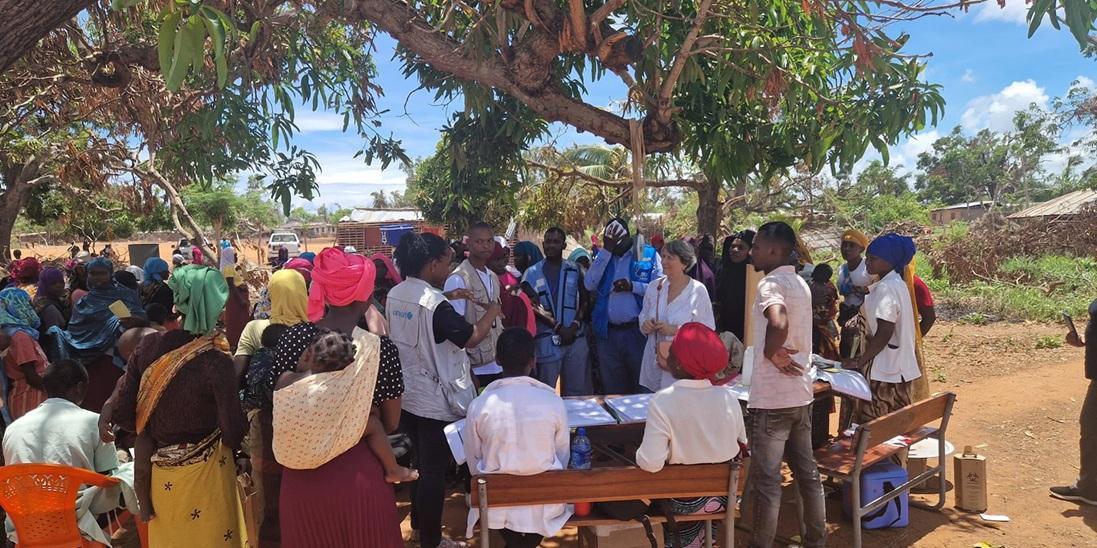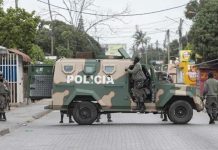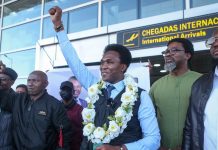Africa-Press – Mozambique. We lost everything when we fled the conflict in 2021, but we are determined to rebuild,” said Vicente Sabonete, who recently returned to Ngãngolo village, his hometown in Mozambique’s northern Cabo Delgado Province. For Vicente and thousands of others, coming home offers hope – but little else.
The conflict in Cabo Delgado is just one of the many crises facing Mozambique. Climate shocks, disease outbreaks and chronic underfunding have pushed the country to the brink. The result is a deepening humanitarian crisis – one that isn’t receiving the global attention and sustained support it so urgently needs.
Cabo Delgado
May 2025 saw the highest number of conflict-related security incidents affecting civilians in Cabo Delgado since 2022. Attacks by non-State armed groups continue to spread, restricting humanitarian access and endangering civilians and aid workers. Since January, more than 95,000 people have been displaced. More than 700,000 returnees desperately need assistance, as they have only limited access to basic services, safety or stability.
“Coming back to our homes is a chance to restart, but without essential services it’s hard to move forward,” said Serdato Martins, a returnee.
For those still displaced, support comes mostly from humanitarian organizations and the generosity of host communities. “The local community has been incredibly supportive. I feel welcome here, but I hope to return to Muidumbe one day when it is safe,” said Simão Bernardo, who fled Muidumbe village in 2021 and now lives with his family in Titimar, Chiúre District.
Climate shocks and hunger crisis
Mozambique is also reeling from the impact of the 2024 El Niño-induced prolonged drought, which pushed almost 5 million people into crisis levels of food insecurity, including nearly 1 million people at emergency levels. More than 140,000 children are suffering from acute malnutrition, and families stripped of livelihoods are resorting to desperate coping strategies, including child marriage, survival sex and selling essential household assets.
And then came the cyclones.
Between late 2024 and early 2025, Mozambique was battered by a succession of tropical storms and cyclones, including Chido, Dekeledi and Jude. Crops were destroyed and homes flattened, and critical infrastructure, including schools and health facilities, was severely damaged.
The UN Central Emergency Response Fund (CERF) provided US$6 million in anticipatory funding ahead of Cyclone Jude’s landfall in Nampula Province in March, which helped people’s recovery.
Health emergencies deepen the crisis
Mozambique is also battling a worsening cholera outbreak, with nearly 4,500 new cases recorded between October 2024 and July 2025. CERF allocated $1.5 million in January to scale up the response. Waterborne diseases are flourishing amid damaged infrastructure and poor access to clean water – conditions made worse by the recent cyclones. Testimony to this, the country confirmed its first mpox cases in July.
Women and girls at highest risk
Conflict and displacement have sharply increased the risks of gender-based violence, including rape and exploitation. Seventy-five per cent of gender-based violence prevention and response services, including mental health and reproductive health care, are disrupted due to funding cuts.
As of April 2025, more than a quarter of humanitarian organizations had scaled back their protection from sexual exploitation and abuse activities, and more than a third had lost dedicated staff due to funding cuts. As a result, survivors no longer have support.
The funding gap
As of July 2025, Mozambique’s Humanitarian Needs and Response Plan (HNRP) was only 19 per cent funded. Of the $352 million required to respond to urgent needs, just $66 million has been received. Humanitarian partners have been forced to slash their targets, reducing the number of people they can assist from 1.1 million to just 317,000. That’s a staggering 71 per cent reduction.
To reflect this harsh funding reality, the HNRP has been reprioritized and now seeks $126 million – still a significant gap.
Paola Emerson, Head of OCHA Mozambique, explained: “Humanitarian partners in Mozambique have the expertise and are ready to scale up life-saving assistance. However, funding cuts mean this critical aid is, sadly, being scaled back at a time of growing and acute needs.”
Mozambique’s crisis is a warning of the consequences of the world turning away from overlapping emergencies in places that don’t make the headlines. The cost of inaction is measured in lives lost, futures abandoned and recovery delayed for years, if not decades.
For More News And Analysis About Mozambique Follow Africa-Press






